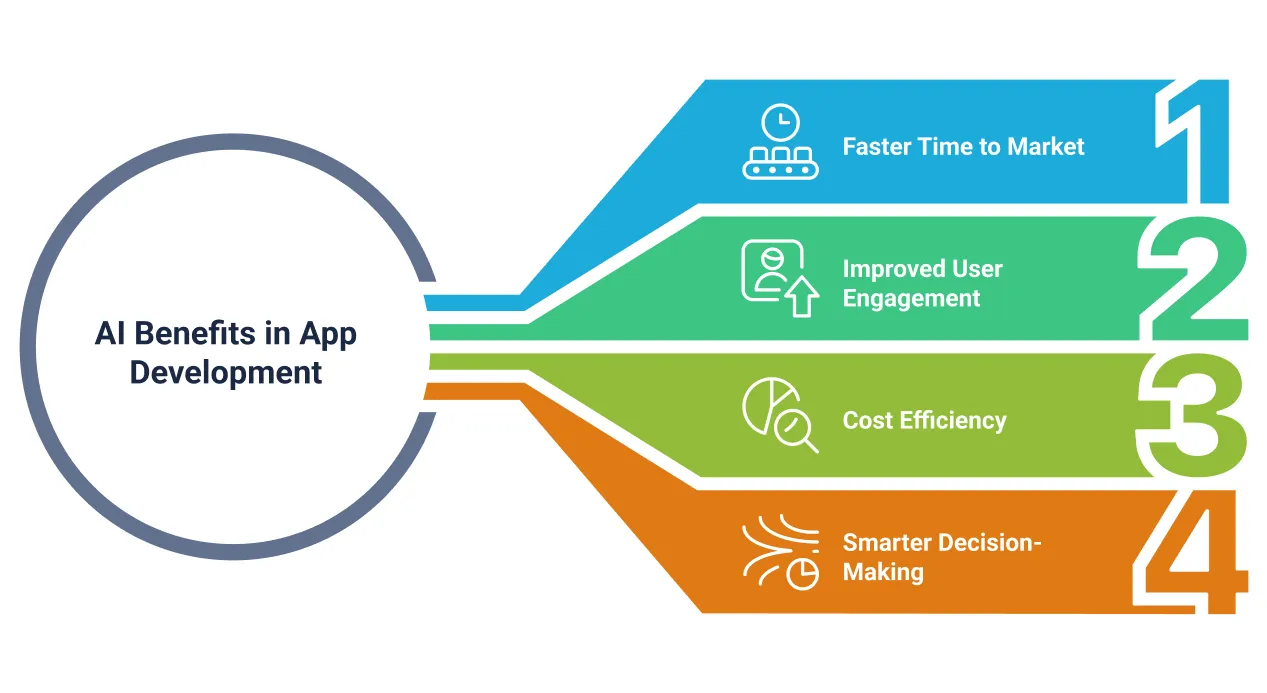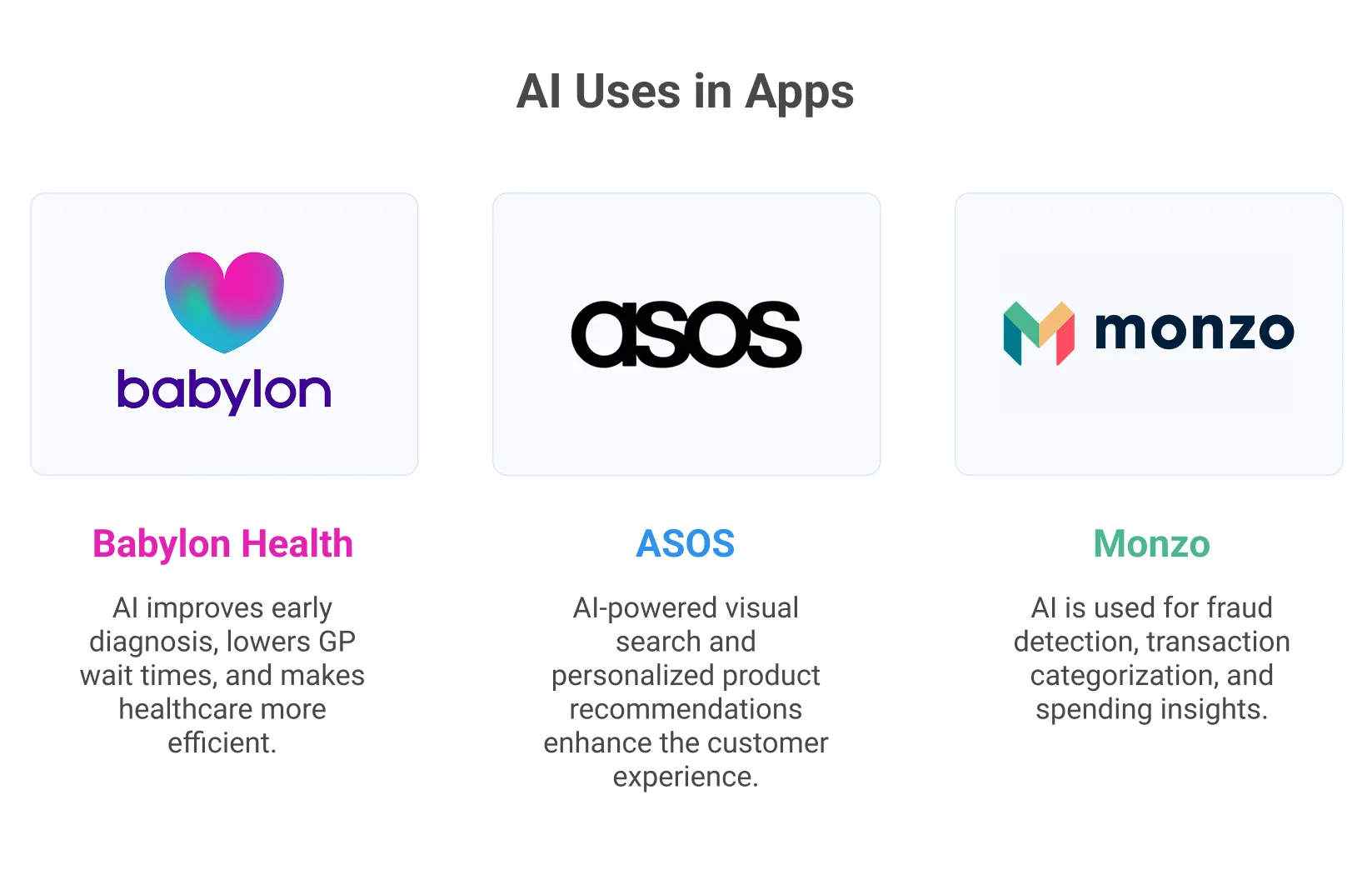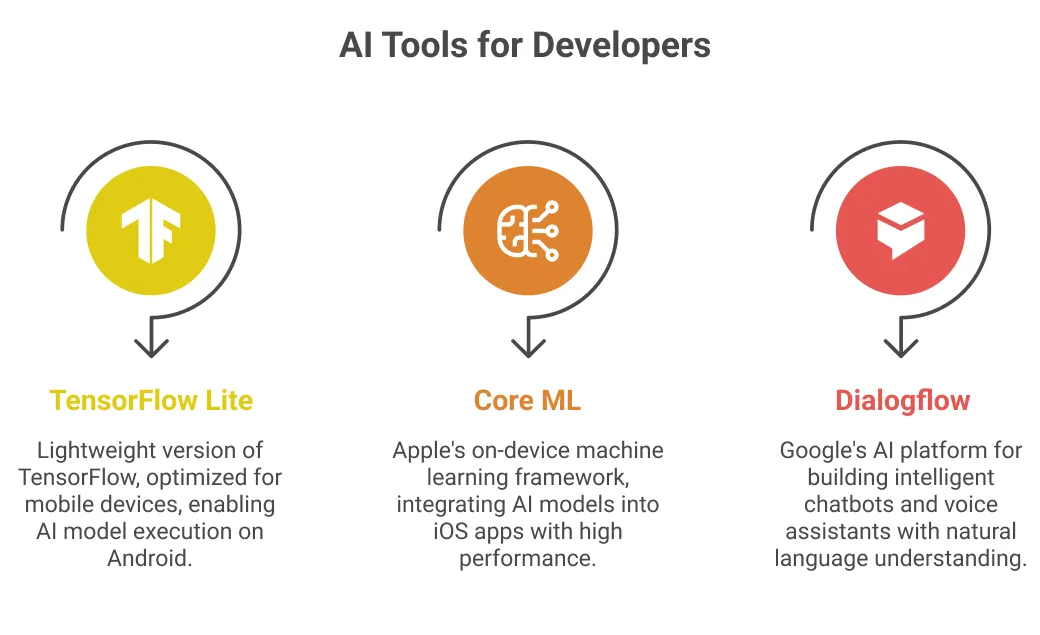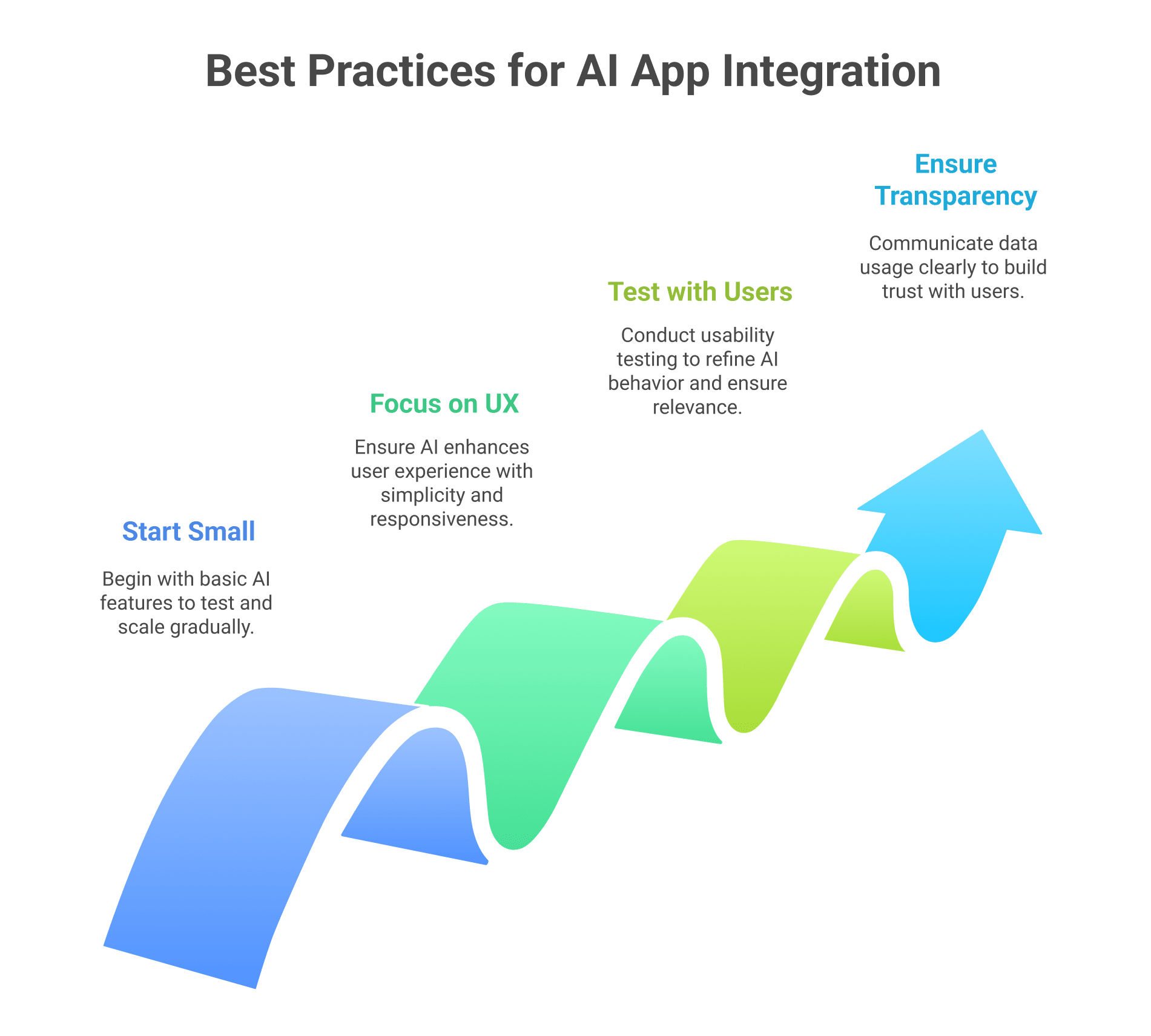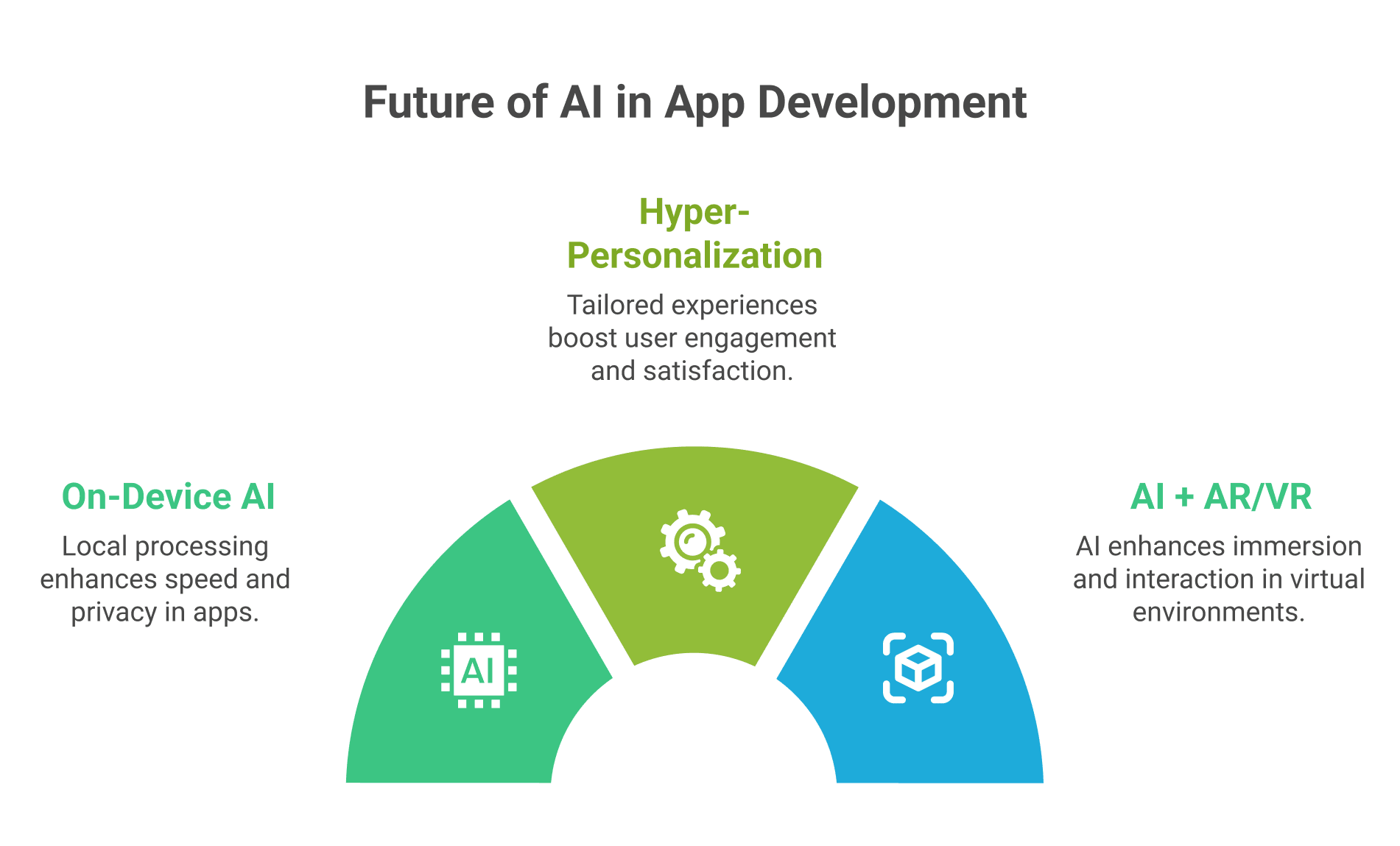Aug
AI in App Development: Transforming the Future of Mobile and Web Applications
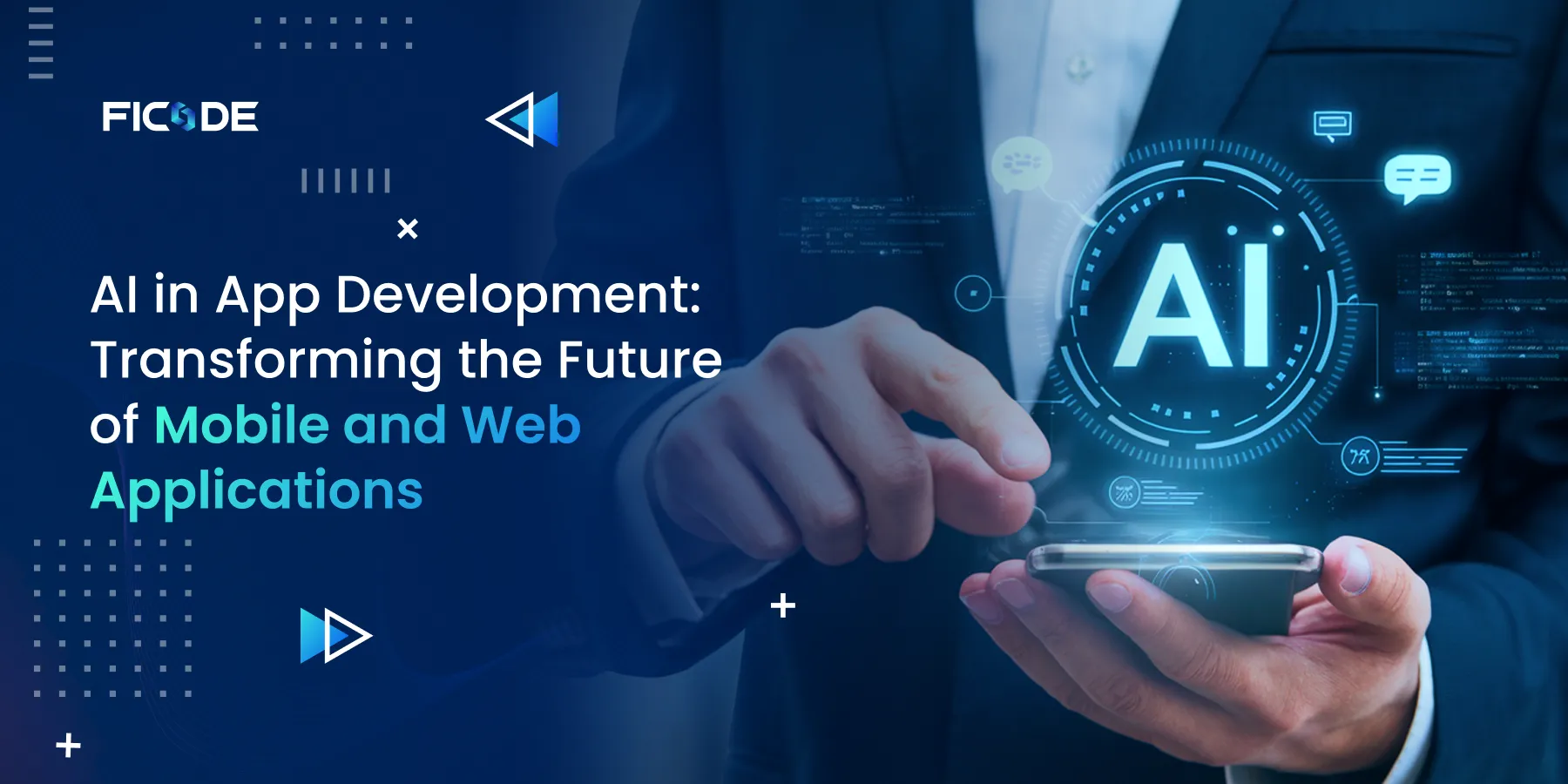
Introduction: The Turning Point in Tech
In 2018, a small health startup in Manchester found itself overwhelmed by the volume of user support queries coming through its mobile app. With a lean team and no automated support system, they struggled to respond quickly. After adopting a simple AI-powered chatbot, they cut response times by 80% and increased app retention by 35% within just three months. This transformation is a clear example of how AI app development is already reshaping the digital landscape—not as a future concept, but as a present-day necessity.
By 2025, Gartner predicts that 80% of smartphones will be pre-loaded with some form of AI capability. Whether you’re a startup founder, developer, or strategist, AI in app development is no longer optional—it’s an essential driver of user engagement, operational efficiency, and long-term scalability. Businesses that embrace AI app development today are better positioned to meet rising user expectations and stay ahead in an increasingly intelligent digital economy.
What Is AI in App Development?
AI in app development involves integrating artificial intelligence technologies like machine learning, natural language processing, and predictive analytics into mobile and web applications. It enables apps to offer smarter, more personalized experiences by learning from user behavior, automating tasks, and making real-time decisions. This approach not only improves functionality and user engagement but also streamlines development processes and operational efficiency across industries.
Why It Matters
AI in app development matters because it goes beyond adding features—it reshapes how applications function and evolve. By enabling real-time learning and adaptive responses, AI allows apps to deliver highly personalized and efficient user experiences. This transformation improves user engagement, reduces manual intervention, and supports data-driven decision-making. In a competitive market, leveraging AI helps businesses create intelligent apps that respond dynamically to user needs and changing conditions.
Market Growth & Adoption Rates
The demand for AI-powered apps is experiencing rapid growth across all sectors, driven by increasing user expectations for smarter, more personalized digital experiences. As organizations continue to seek efficiency, automation, and competitive differentiation, artificial intelligence is becoming a core component of app development strategies. According to Statista, the global AI software market is expected to reach approximately £120 billion by 2025, reflecting the rising importance of intelligent technologies in digital transformation.
Key Areas Where AI Is Reshaping App Development
1. Personalization
Apps use machine learning to analyze user behavior and preferences, enabling personalized content, product suggestions, and notifications that boost engagement, enhance user experience, and increase overall satisfaction.
Example: Spotify’s “Discover Weekly” uses AI algorithms to analyze listening habits and curate personalized playlists each week, setting a benchmark for how apps can deliver tailored and engaging user experiences.
2. Intelligent Automation
AI enables automation of repetitive tasks such as testing, bug detection, user behavior tracking, and even code generation. This speeds up app development, reduces manual errors, and allows developers to focus on more strategic, value-driven tasks.
Example: GitHub Copilot uses advanced machine learning models to suggest code snippets, functions, and entire logic structures in real time. It enhances developer productivity, reduces development time, and streamlines workflows, especially during large or complex app development projects.
3. Predictive Analytics
Apps use predictive analytics to anticipate user actions and suggest next steps, making them ideal for fitness, finance, and productivity sectors where timely, relevant prompts can enhance user experience and outcomes.
Example: MyFitnessPal analyses users’ previous logging habits to suggest meals, exercises, or goals. This saves users time, encourages consistent tracking, and significantly boosts daily engagement and app retention rates.
4. Natural Language Processing (NLP)
Apps now use natural language processing (NLP) to understand and respond to user input—whether typed or spoken—allowing for more human-like, intuitive interactions and better user engagement.
Google Assistant handles over 500 million voice queries every day, demonstrating how advanced NLP enables seamless voice interactions and real-time responses across a wide range of user intents.
Benefits of AI in Mobile & Web App Development
1. Faster Time to Market
AI streamlines app development by automating repetitive tasks like testing and debugging, allowing teams to shorten development cycles, accelerate time to market, and release new features or updates more frequently.
2. Improved User Engagement
AI enhances engagement by delivering personalized content, targeted notifications, and adaptive interfaces, encouraging users to interact more often, stay longer in the app, and take meaningful actions that boost conversion rates.
3. Cost Efficiency
By automating customer support, data processing, and QA testing, AI reduces the need for manual labor and long development hours—helping businesses cut operational costs without compromising on quality or performance.
4. Smarter Decision-Making
AI-powered analytics track user behavior and app performance in real time, enabling developers and marketers to make timely, data-backed decisions that refine user experience and improve business outcomes.
AI in Cross-Platform App Development
AI in cross-platform app development is gaining momentum as frameworks like Flutter and React Native now support AI integrations through APIs and third-party plugins. This allows developers to build intelligent features such as chatbots, recommendation engines, and voice recognition across both Android and iOS using a single codebase. The result is faster development, reduced costs, and a consistent AI-powered user experience across multiple platforms, making AI adoption more accessible for all businesses.
The result is faster development, reduced costs, and a consistent AI-powered user experience across multiple platforms, making AI adoption more accessible for all businesses.
Why It Matters
Why it matters is simple—AI integration in cross-platform frameworks eliminates the need to build separate features for Android and iOS. Developers can write once and deploy AI capabilities across both platforms, saving significant time and resources. This unified approach not only accelerates app delivery but also ensures a consistent user experience. It makes AI adoption more scalable, especially for startups and businesses with limited development budgets or tight release schedules.
Real-World Examples of AI in App Development
1. Babylon Health: Revolutionizing Digital Healthcare with AI
Babylon Health, a UK-based digital healthcare app, uses AI to offer users a fast and accessible way to check symptoms, book virtual appointments, and receive medical advice. During the peak of the COVID-19 pandemic, its AI triage system helped reduce pressure on the NHS by handling thousands of patient queries daily. This AI-driven solution improved early diagnosis, lowered GP wait times, and made healthcare more efficient, especially in under-resourced or rural areas.
2. ASOS: Enhancing Online Shopping Through AI
Leading fashion retailer ASOS has integrated AI into its mobile and web apps to transform the customer experience. Through AI-powered visual search, users can upload an image and instantly receive product suggestions that match or resemble the look. Combined with personalized product recommendations based on user preferences and past behavior, ASOS reports a more than 20% increase in conversion rates. Their success shows how AI can boost both user satisfaction and business revenue.
3. Monzo: Smarter Banking with Built-In AI
Monzo, one of the UK’s top digital challenger banks, relies heavily on AI to offer a seamless financial experience. AI is used for real-time fraud detection, transaction categorization, and spending insights. Users receive automated nudges about subscriptions, overspending, or unusual activity, giving them more control over their finances. Monzo’s smart use of AI not only improves operational efficiency but also builds trust with users through enhanced transparency and proactive financial guidance.
AI Tools & Frameworks for Developers
1. TensorFlow Lite
TensorFlow Lite is a lightweight, mobile-optimized version of TensorFlow, allowing developers to run AI models directly on Android devices for tasks like image recognition and natural language processing.
2. Core ML
Core ML is Apple’s on-device machine learning framework, enabling developers to integrate AI models into iOS apps with high performance, ensuring faster processing and user data privacy.
3. TensorFlow Lite
Dialogflow is Google’s AI platform that helps developers build intelligent chatbots and voice assistants, supporting natural language understanding and seamless integration into mobile apps and smart devices.
Challenges of Using AI in App Development
1. Data Privacy & Ethics
AI apps collect and analyze personal user data, raising privacy and ethical concerns. Developers must ensure compliance with GDPR and similar regulations while maintaining transparency in how data is used and stored.
2. High Initial Investment
Integrating AI into apps demands skilled talent, infrastructure, and time for model training and testing. The upfront costs can be high, especially for startups or small businesses with limited development budgets.
3. Lack of Training Data
Effective AI models need large, high-quality datasets. New or niche apps may lack sufficient user interactions, making it difficult to train models accurately or deliver meaningful predictions and personalized experiences early on.
Best Practices for AI App Integration
1. Start Small
Start with basic AI features such as chatbots or product recommendations. This allows testing and gradual scaling while reducing risk and complexity during the early stages of integration.
2. Focus on UX
Ensure AI features enhance, not hinder, the user experience. Prioritize simplicity, responsiveness, and clear value to users, especially when introducing intelligent automation or personalization.
3. Test with Real Users
Conduct usability testing across diverse user groups before launch. Real-world feedback helps fine-tune AI behavior and ensures relevance, accuracy, and accessibility for all users.
4. Ensure Transparency
Clearly communicate what data the AI collects, how it’s used, and why. Transparency builds trust—especially vital in sectors like healthcare, finance, and legal services.
Future Trends: What’s Next for AI in App Development?
1. On-Device AI
On-device AI is gaining traction as developers shift from cloud-dependent processing to local execution on smartphones. This approach boosts app speed, reduces latency, and significantly improves user data privacy. By keeping AI computations within the device, users benefit from real-time responsiveness without relying on an internet connection. For example, Apple’s A-series chips support on-device machine learning, allowing apps to perform intelligent tasks instantly, even in offline environments.
2. Hyper-Personalization
AI is evolving beyond basic product suggestions to offer hyper-personalized experiences tailored to individual user behavior, location, habits, and preferences. In future app development, AI will anticipate needs and deliver content, services, and notifications at the right time and context. This deeply targeted approach boosts engagement, retention, and satisfaction, making apps feel more like intelligent digital companions than static tools—reshaping how users interact with mobile and web applications.
3. AI + AR/VR
As augmented and virtual reality technologies become more common, AI will play a key role in enhancing immersion and interaction. AI will track user motion, facial expressions, and gestures to deliver dynamic responses and predict user intent. This synergy will make AR/VR experiences smoother, more responsive, and intuitive—benefiting sectors like gaming, retail, remote training, and healthcare. The result is a more seamless blend of the physical and digital worlds.
Conclusion: Embracing the AI Shift
AI in app development has moved beyond being an emerging trend—it’s now essential for creating intelligent, user-centric, and competitive digital products. Whether the goal is to enhance user engagement, streamline development workflows, or make more informed business decisions, AI delivers measurable value. With accessible tools, growing frameworks, and proven success across industries, the time to act is now. Businesses that adopt AI today will lead the innovation curve tomorrow. The question isn’t whether AI belongs in your app—it’s whether your app can succeed without it in a rapidly evolving digital landscape.
Frequently Asked Questions
AI in app development refers to the integration of artificial intelligence technologies—such as machine learning, natural language processing, and computer vision—into mobile and web applications. These technologies allow apps to become smarter, more adaptive, and more efficient over time.
AI in app development enhances performance by enabling predictive analytics, automating processes like testing and bug detection, and personalizing content delivery. This leads to faster load times, better user engagement, and improved app reliability.
No. While larger companies may have more resources, even small businesses and startups can benefit from AI in app development. Tools like TensorFlow Lite, Dialogflow, and ready-made APIs make it easier and more affordable to integrate AI features at scale.
The most common applications of AI in app development include chatbots, recommendation engines, voice assistants, image recognition, fraud detection, and smart search functionalities. These use cases improve both user experience and business outcomes.
Absolutely. AI in app development enables real-time personalization by analyzing user behavior, preferences, and past interactions. This helps deliver content, recommendations, and notifications that are highly relevant to individual users.
Yes—when implemented correctly. On-device AI can offer enhanced privacy by processing data locally, while encryption and GDPR compliance protect user data. Businesses must, however, prioritize ethical AI practices and secure data handling.
Initially, AI in app development may extend timelines due to the learning curve and data preparation. But in the long term, it shortens development cycles by automating repetitive tasks like testing, content tagging, and customer service responses.
Challenges include data privacy concerns, the need for large datasets, high initial costs, and the complexity of training machine learning models. Despite these, the long-term benefits of AI in app development often outweigh the hurdles.
Developers can start small by using AI APIs like Google Cloud Vision, IBM Watson, or Microsoft Azure AI. Learning frameworks such as TensorFlow or Core ML can also help developers embed AI in app development without building models from scratch.
No. AI in app development is designed to assist—not replace—developers. It automates repetitive tasks, offers intelligent suggestions, and enhances productivity, but creativity, problem-solving, and UX decisions still require a human touch.
